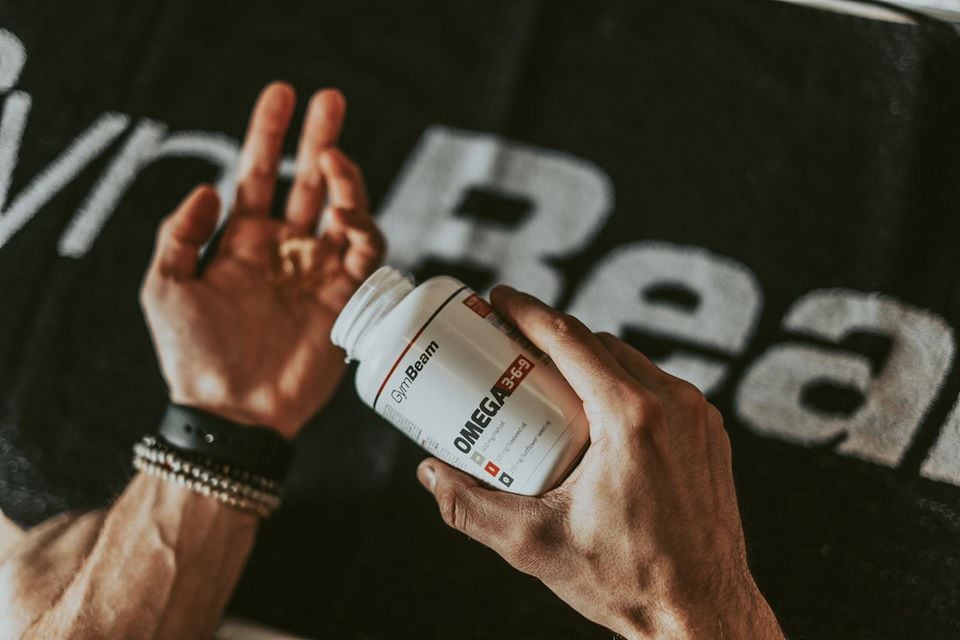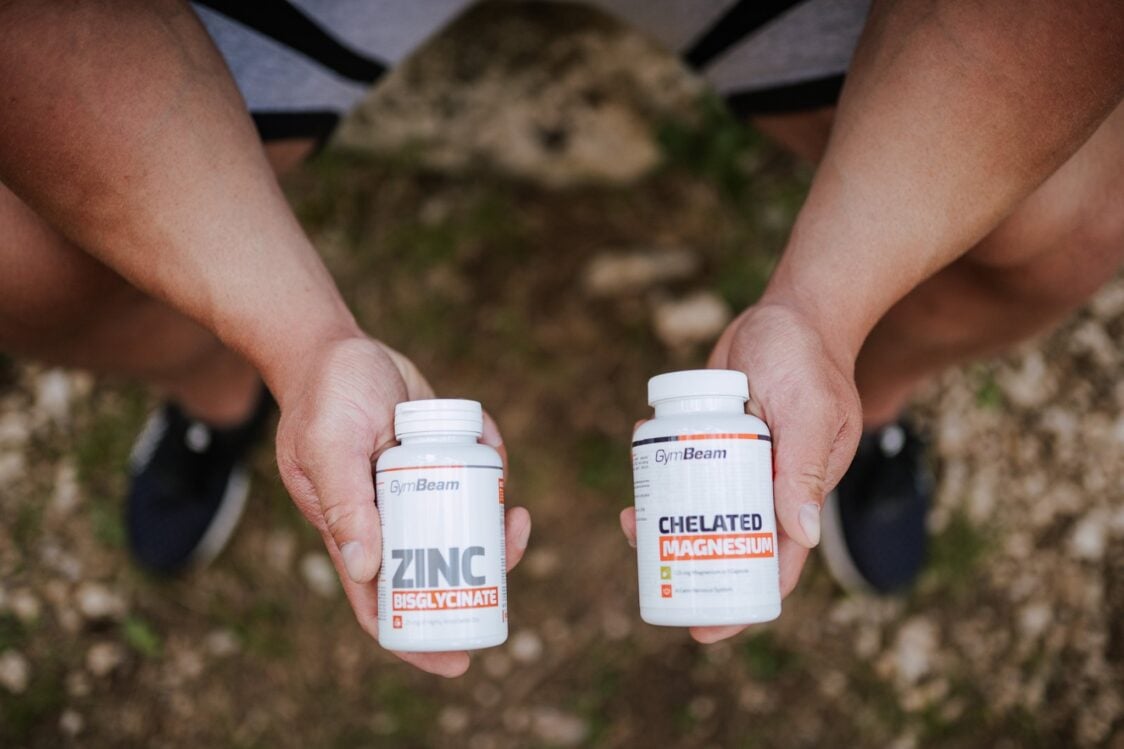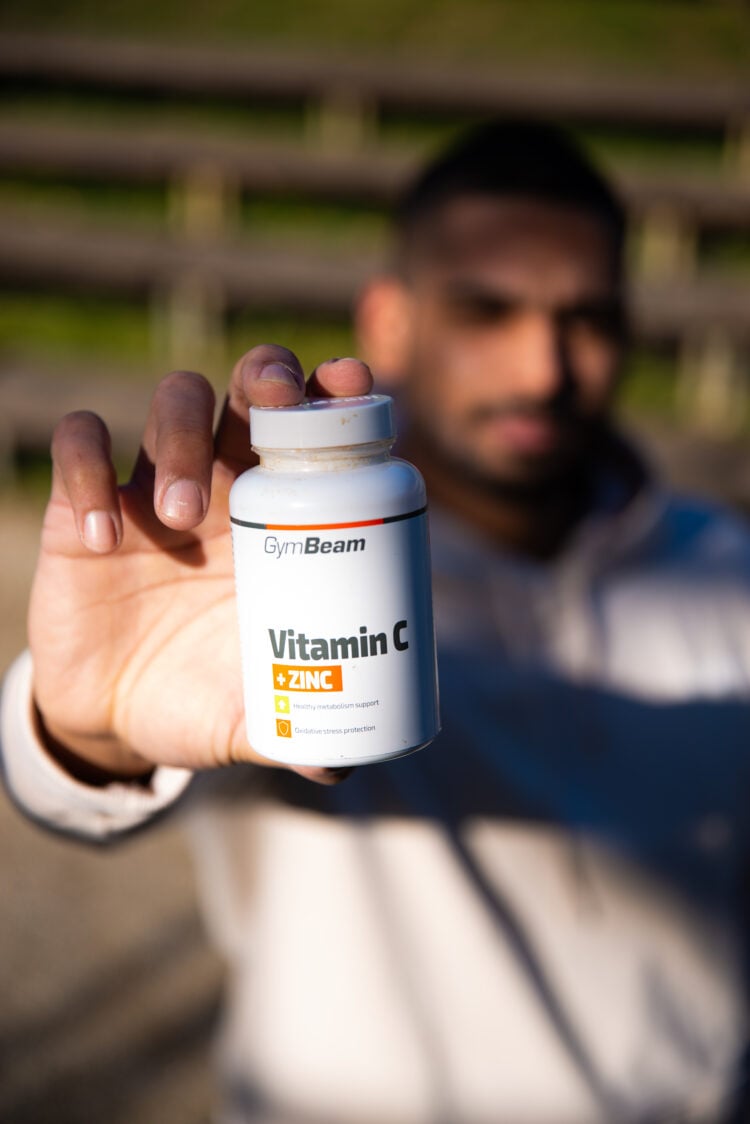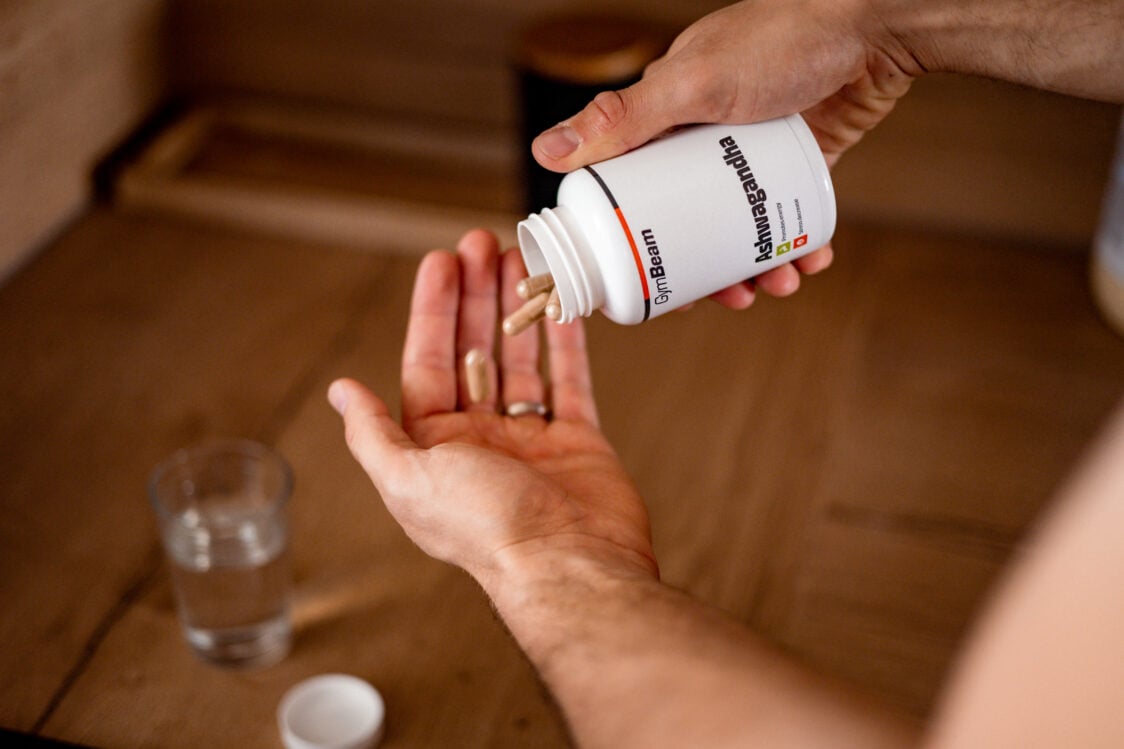Table of Contents
If we were to closely analyse the male and female body, we would discover notable differences. Men stand apart from women not only in terms of muscle mass, but in various other aspects as well. Testosterone, in particular, plays a vital role in men, which is also closely connected to prostate health and fertility. It is precisely these factors that determine the specific nutrients that men should prioritize in their diet.
Why do the nutritional needs of the male body differ from those of the female body?
There are no significant differences in the nutritional needs between boys and girls. However, as they gradually grow and enter puberty, which is accompanied by hormonal changes, some distinctions begin to emerge. This period is characterized in boys by rapid growth and the development of muscle mass. This, in turn, is associated with higher protein requirements and overall increased energy intake needs. As a result, the nutritional requirements of the male body start to differ from those of the female body.
Apart from growth and muscle mass, the male body also exhibits other distinctive physiological processes that determine the importance of certain vitamins, minerals, and other nutrients.
- Spermatogenesis, or the production of sperm, benefits from the intake of nutrients such as selenium and omega-3 fatty acids. [18,40]
- For example, zinc is important for the production and function of the male sex hormone testosterone. [12]
- The prostate, an organ exclusive to the male body, requires nutrients with antioxidant properties such as selenium, vitamin C, and other for its health.
- If you want to learn more about the differences between men and women and how this affects their nutritional needs, be sure to check out the following article: Women & Nutrition: The Most Important Vitamins and Minerals for Health and Beauty
- Detailed information about women’s nutritional needs can also be found in this article: Do Men and Women Share the Same Nutritional Needs?

Why should men prioritize proper nutrition and a healthy lifestyle?
Why should you eat healthy? A healthy diet and lifestyle require a certain degree of discipline, and sometimes it may be easier to stick to familiar habits and old routines. However, it is definitely worth overcoming this discomfort because nutrition is a factor that directly affects your health.
Healthy diet is associated with a lower occurrence of many health issues.
Studies have shown that, for example, it helps reduce the risk of developing various types of cancer, such as prostate and colorectal cancer. These were among the most common types of cancer in men according to data from 2020, along with lung cancer. [39,48]
Healthy diet also contributes to a lower incidence of:
- cardiovascular problems such as heart attack and stroke.
- obesity, which is a significant risk factor for the development of many diseases. [23,29,33]
Men will also surely appreciate the effect of nutrition on testosterone levels. Research has shown that testosterone is on a gradual decline in the male population. However, testosterone is crucial for the male reproductive system, muscle growth, overall physical performance, and many other areas of male health. [23,29,33]
If you are interested in learning more about the effects of low testosterone levels, we suggest reading our article: Symptoms of Low Testosterone and How to Fight It
You might be interested in these products:
What should men focus on in their diet?
1. Energy Requirements
It may not come as a surprise that men typically need to consume more calories compared to women. This is primarily because men tend to have a higher basal metabolic rate (BMR), which is the energy required by the body for basic physiological functions during rest and sleep. The BMR increases with a higher proportion of muscle mass. Considering that men are generally larger and have more muscle mass and lower body fat percentages, they naturally have a higher energy requirement. Additionally, the male sex hormone testosterone plays a role in promoting muscle growth, further contributing to their higher caloric needs. [3,17]
The total energy requirements also depend on the type, amount, and intensity of physical activity. If a man has a physically demanding job or engages in regular sports or exercise, it will have an impact on his body’s calorie needs.
What is the recommended daily intake of calories for men?
According to EFSA (European Food Safety Authority), men should consume an average of 2340-3340 kcal per day. The lower values apply to men with sedentary lifestyles, and the requirement increases with increasing physical activity. This means that active athletes may ultimately have an even higher calorie need than the recommended range. [38]
The individual daily energy requirement can be calculated based on several parameters. If you’re interested in knowing how many calories your body needs in relation to your goals, our online energy intake calculator can assist you in this.

2. Protein
Protein intake is directly related to the amount of muscle mass. Since men naturally have a higher proportion of muscle mass, they typically require a higher protein intake. Proteins are crucial for maintaining and repairing muscles. Additionally, if a man is actively trying to build muscle, his protein requirements further increase.
Testosterone also has a significant impact on protein requirements. It increases muscle protein synthesis (MPS), which is the process of building new proteins in the body. During puberty, when the effects of testosterone become more pronounced, protein needs in men are substantially increased. [32]
Similar to calorie intake, protein requirements also depend on the level of physical activity. A man who engages in manual labour and further incorporates activities like running or working out at the gym has significantly higher protein needs compared to someone who sits all day in an office.
What is the recommended daily intake of protein for men?
An individual with a sedentary lifestyle should ideally consume around 0.8 grams of protein per kilogram of body weight (BW) per day. However, according to some recommendations, a slightly higher intake of 1 gram per kilogram of body weight may be advantageous.
Protein requirements increase with sports and physical activity. According to the International Society of Sports Nutrition (ISSN), individuals primarily engaged in strength training should aim for a daily protein intake ranging from 1.4 to 2 grams per kilogram of body weight to ensure sufficient protein intake. [19,45]
If you are interested in learning more about optimal protein intake, its effects, and food sources, be sure to check out the following article: Protein: Its Functions in the Body, Recommended Intake, Food Sources and Deficiency Symptoms

3. Omega-3 Fatty Acids
Omega-3 fatty acids (FAs) rank among polyunsaturated fatty acids and are one of the essential building blocks of healthy fats. They are known for their numerous positive effects on health, including their impact on the cardiovascular system, brain, and immune function. [6]
The essential alpha-linolenic acid (ALA) helps maintain optimal blood cholesterol levels, while eicosapentaenoic acid (EPA) and docosahexaenoic acid (DHA) are important for eye and brain health. [40]
These fatty acids have generally shown a positive impact on cardiovascular health. Therefore, men should not overlook their importance, as they have a higher risk of developing cardiovascular diseases compared to women.
Omega-3 fatty acids, including EPA and DHA, are also present in sperm membranes. They are believed to play a role in sperm flexibility, motility, and overall quality. A meta-analysis has shown that omega-3 supplementation in infertile men can improve sperm motility. Moreover, a deficiency of DHA in sperm has been linked to low sperm concentration. Thus, it seems that omega-3 fatty acids may have a positive impact on male fertility. [13,18]
What is the recommended daily intake of omega-3 for men?
EFSA Recommendation:
- 250 mg EPA + DHA
- the intake of ALA should ideally represent around 0.5% of the total energy intake (TEI) [10]
DACH Recommendation:
- the intake of ALA should ideally represent around 0.5% of TEI
- there is no specific recommendation for the intake of EPA and DHA [46]
Where to find omega-3 fatty acids?
- The essential alpha-linolenic acid (ALA), which needs to be obtained through diet, can be found in foods such as walnuts, rapeseed oil, flaxseeds, flaxseed oil, chia seeds, and soy. [21,44]
- EPA and DHA are primarily found in fatty sea fish and fish oil. Their plant-based source is seaweed or marine algae. [21,44]
If you’d like to learn more about omega-3 fatty acids, read our article: Omega-3 Fatty Acids: Do You Consume Enough and in the Right Proportion to Omega-6?

4. Vitamin D
Vitamin D boasts a wide range of effects and is needed for proper muscle and immune system function. Additionally, it plays a role in the proper absorption of calcium and phosphorus, making it crucial for healthy bones and teeth. [40]
One of the organs where this vitamin is synthesized are the testes. They are therefore believed to be important for sperm production and function. Additionally, this organ supposedly plays a role in testosterone production. However, further research and clarification are needed to fully understand these potential effects on male reproductive health. [5]
What is the recommended daily intake of vitamin D for men?
- EFSA recommendation: 15 μg [38]
- DACH recommendation: 20 μg [46]
Where to find vitamin D?
The majority of vitamin D is obtained from exposure to sunlight. The highest food sources of vitamin D include fatty sea fish, organ meats, fish oil, and egg yolks. There are also some mushrooms and lichens that produce vitamin D when exposed to UVB radiation. [7]
Foods rich in vitamin D
| Food | |
|---|---|
| salmon | 11 μg |
| mackerel | 16 μg |
| herring | 4.2 μg |
| egg yolk | 5.4 μg |
Learn more about vitamin D, its functions, sources, and deficiency symptoms right here: Vitamin D: Why Is It So Important, What Causes Deficiency, and How to Supplement It?

5. Selenium
Selenium is an important antioxidant that helps the body combat oxidative stress. It also plays a crucial role in the immune system and thyroid function. Additionally, selenium is involved in maintaining the health of hair and nails. [40]
This mineral is essential for the proper formation of sperm and overall fertility. This is likely due to its antioxidant properties, which help protect sperm from the damaging effects of free radicals generated by oxidative stress. However, it appears that supplementation may only be beneficial for individuals with low selenium levels in their bodies. When selenium levels are already optimal and dietary supplements increase them to excessive levels, it may potentially have undesirable effects. [1,28,35]
What is the recommended daily intake of selenium for men?
- EFSA recommendation: 70 μg [38]
- DACH recommendation: 70 μg [46]
Where to find selenium?
The best sources of selenium include Brazil nuts, fish, seafood, and organ meats. Considerable amounts of selenium can also be found in whole grains, meat, and dairy products. The selenium content in foods can vary significantly because its presence in plant-based foods depends on the amount of selenium in the soil where the plants were grown. For animal-based foods, the selenium content depends on the selenium levels in the animal feed. [43,47]
Foods rich in selenium
| Selenium content (100 g) | |
|---|---|
| Brazil nuts | 1920 μg |
| chicken liver | 55 μg |
| sardines | 53 μg |
| shrimp | 38 μg |
| tuna | 37 μg |
| beef | 17 μg |
| barley | 38 μg |
| oats | 29 μg |
| plain yoghurt | 10 μg |
6. Zinc
Zinc is an important mineral that the body needs for optimal functioning of the immune system, eyesight, and maintenance of healthy bones. It also plays a role in carbohydrate, protein, fatty acid and vitamin A metabolism. [40]
Furthermore, zinc contributes to maintaining normal blood testosterone levels. It also plays a vital role in the conversion process of testosterone into its biologically active form. Additionally, zinc helps prevent the conversion of testosterone into estrogen, which can result in conditions such as gynaecomastia, the enlargement of breast glands in men, when excessive amounts of the female sex hormone are present.
Zinc is also involved in proper sperm function. It is believed to contribute to the strength of sperm membranes and protect sperm from oxidative stress. Insufficient zinc intake may therefore be a potential risk factor for low sperm quality and reduced fertility. [11,12,40]
Last but not least, zinc is also important for prostate health. The prostate naturally contains a high concentration of zinc, and its levels serve as an indicator of proper prostate function. [12,40]
What is the recommended daily intake of zinc for men?
- EFSA recommendation: 14 mg [38]
- DACH recommendation: 11-16 mg [46]
Where to find zinc?
The best food sources of zinc from among animal-based sources include red meat, fish, and eggs. Among plant-based foods, legumes and whole grains are among the leading sources of zinc. [9]
Read more about zinc in the following article: Zinc: What Is It Good For, What Causes a Deficiency and What Are the Best Sources?
Foods rich in zinc
|
| Zinc content (100 g) |
|---|---|
| beef | 4.3 mg |
| pork | 1.8 mg |
| eggs | 1.3 mg |
| Edam cheese | 3.8 mg |
| lentils | 3.3 mg |
| peas | 3.5 mg |
| oats | 3.6 mg |
| buckwheat | 2.4 mg |
7. Magnesium
Magnesium is a mineral that the body requires for maintaining optimal electrolyte balance and protein synthesis. It is essential for the function of muscles, bones, and teeth. Additionally, magnesium plays a crucial role in the proper functioning of the nervous system and mental well-being. [40]
This nutrient likely has a positive impact on testosterone production. Studies have shown that if a man has low levels of both magnesium and testosterone, magnesium supplementation may lead to an increase in the levels of this male sex hormone. [42]
Magnesium is also associated with a lower occurrence of muscle cramps. These are common, particularly among athletes, and magnesium supplementation in the form of a dietary supplement can contribute to alleviating this issue. [2]
What is the recommended daily intake of magnesium for men?
- EFSA recommendation: 350 mg / day [38]
- DACH recommendation: 350 mg [46]
For more information on magnesium intake, deficiency symptoms, and health benefits, you can refer to the following article: Cramps, Fatigue, Irritability or Sleep. What Else Does Magnesium Affect?
Foods rich in magnesium
| Magnesium content (100 g) | |
|---|---|
| pumpkin seeds | 550 mg |
| sunflower seeds | 325 mg |
| almonds | 270 mg |
| dark chocolate 70-85 % | 228 mg |
| buckwheat | 231 mg |
| walnuts | 158 mg |
| oats | 138 |
| barley | 79 mg |
| lentils | 47 mg |

8. Vitamins with antioxidant effects
Antioxidants are substances that help protect the body against free radicals, which are formed as a result of oxidative stress. They are thus associated with reducing the risk of various conditions, such as cardiovascular diseases and cancer. In men, antioxidants also play an important role in protecting sperm and the prostate. Antioxidants include various vitamins, as well as the aforementioned selenium and zinc. [16,18]
Which vitamins rank among antioxidants?
- manganese
- EFSA recommendation: 3 mg / day [38]
- DACH recommendation: 2-5 mg [46]
- riboflavin (vitamin B2)
- EFSA recommendation: 1.3 mg / day [38]
- DACH recommendation: 1.4 mg / day [46]

9. Fibre
Fibre is an indigestible component found in plant-based foods. Although the body cannot break it down, and it passes through the digestive tract mostly unchanged, it holds numerous health benefits. It is necessary for proper digestion and bowel movements, as well as for an optimal composition of the gut microbiota. Fibre also affects things beyond the digestive tract, such as blood sugar levels and immune function.
Not only is fibre necessary for proper digestion, but it also influences the health of the digestive tract itself. Sufficient fibre intake is associated with a lower risk of colorectal cancer. One meta-analysis indicated that for every 10g increase in daily fibre intake, there is an approximate 10% reduction in the risk of developing this disease. [31]
Where to find fibre?
Fibre is found exclusively in plant-based foods. Good sources of fibre include legumes, whole grains, vegetables, fruits, and nuts and seeds.
However, you can also include fibre in your diet in the form of various dietary supplements, such as:
- psyllium
- apple fibre
- glucomannan
- a complex supplement like Daily Fiber with a combination of multiple types of fibre.
What is the recommended daily intake of fibre for men?
The recommendations of various nutrition institutions may vary slightly, but they all suggest a daily intake in the range of 25–35 grams. According to EFSA, the recommended daily intake for a healthy adult is 25 grams of fibre. [8,25,37]
You can achieve such an intake through sources like:
- 70 g of whole grain pasta (approx. 6 g of fibre),
- 50 g of oats (approx. 7 g of fibre),
- 50 g of whole grain toast bread (approx. 3 g of fibre),
- 100 g of carrots (approx. 3 g of fibre),
- 100 g of banana (approx. 2.5 g of fibre),
- and 30 g of almonds (approx. 4 g of fibre). [8,25,37]
What dietary supplements can be beneficial for men’s health?
1. Tribulus Terrestris
Tribulus Terrestris is an extract from the Tribulus terrestris plant. Traditional medicine utilized it to deal with fertility issues and low libido. Today, it is primarily recognized as a natural alternative to steroids. Studies have shown a correlation between this plant and increased testosterone levels, muscle growth, and performance. [14,36]
2. Ashwagandha
Ashwagandha, also known as Indian ginseng, is renowned for its numerous health effects. It ranks among adaptogens, which are substances that help the body better cope with stress. It is also used in cases of infertility and sexual dysfunction. Research suggests that Ashwagandha may have an impact on sperm production and quality, as well as testosterone production. [4,26]

3. Fenugreek
Fenugreek is a plant used in traditional medicine to improve libido. This usage has persisted to this day because it contains steroid saponins, which may potentially increase testosterone levels. In addition, it has promising effects in other areas of health. It may help lower blood sugar levels (glycaemia), making it useful for individuals who need to maintain optimal glycaemic control. [24,27]
4. Saw Palmetto
Serenoa repens (Saw Palmetto) is a palm plant whose fruits are used to produce an extract. It is rich in fatty acids such as myristic acid, oleic acid, and others. Studies have shown that it has an effect on prostate health. [20]
5. DAA
DAA (Aspartic Acid) is naturally found in the human body and involved in the function of endocrine glands and the nervous system. However, studies have shown that it may also play a role in increasing testosterone levels and male fertility. There is also a potential impact on growth hormone production and muscle growth. [30]
6. Antioxidants
Apart from the aforementioned vitamins and minerals, there are other bioactive substances that can have antioxidant effects and contribute to reducing the risk of cancer and protecting sperm from oxidative stress. [34]
Substances that have shown promising results in research include, for example:
- lycopene
- green tea and coffee polyphenols
- coenzyme Q10 [16]
7. Ginseng
Ginseng is used in traditional Chinese medicine due to its potential effects on immunity, cognitive abilities, and mood. As an adaptogen, it may be useful in managing stress. It has also been shown to potentially impact sexual health and support the production and function of sperm. [15,22]
8. Complex dietary supplements
Many dietary supplements combine multiple nutrients and active ingredients targeting specific areas of men’s health. You can find supplements focusing on prostate health, testosterone support, antioxidant intake, or a combination of various nutrients in the form of a multivitamin that is generally formulated for men’s health.

What are the main takeaways?
The male body has its unique functions and characteristics that come with specific nutritional requirements. These include a naturally higher proportion of muscle mass, testosterone production and function, sperm quality, and prostate health. Due to these specifics, men should pay attention not only to their calorie and protein intake, but also to specific vitamins and minerals such as zinc, selenium, and vitamin D. In conclusion, a healthy and diverse diet emphasizing these specific nutrients can significantly contribute to better overall male health.
Was this article beneficial to you and did you learn something new? Then don’t forget to share it with your friends!
[1] BANO, I. et al. Role of selenium on oxidative stress and male reproductive system. – https://www.semanticscholar.org/paper/Role-of-selenium-on-oxidative-stress-and-male-Bano-Sajjad/46e7d51f38b7dc7661734e5c06dc165cebe082f2
[2] BARNA, O. et al. A randomized, double-blind, placebo-controlled, multicenter study assessing the efficacy of magnesium oxide monohydrate in the treatment of nocturnal leg cramps. – https://pubmed.ncbi.nlm.nih.gov/34719399/
[3] BASUALTO-ALARCÓN, C. et al. Testosterone Signals through mTOR and Androgen Receptor to Induce Muscle Hypertrophy. – https://journals.lww.com/00005768-201309000-00009
[4] BONILLA, D.A. et al. Effects of Ashwagandha (Withania somnifera) on Physical Performance: Systematic Review and Bayesian Meta-Analysis. In Journal of Functional Morphology and Kinesiology. – https://www.ncbi.nlm.nih.gov/pmc/articles/PMC8006238/
[5] DE ANGELIS, C. et al. The role of vitamin D in male fertility: A focus on the testis. – http://link.springer.com/10.1007/s11154-017-9425-0
[6] DUYFF, R.L. Complete Food & Nutrition Guide. . New York: Academy of Nutrition and Dietetics, 2017. ISBN 978-0-544-52058-5.
[7] EFSA PANEL ON DIETETIC PRODUCTS, NUTRITION AND ALLERGIES (NDA) Dietary reference values for vitamin D. – https://onlinelibrary.wiley.com/doi/abs/10.2903/j.efsa.2016.4547
[8] EFSA PANEL ON DIETETIC PRODUCTS, NUTRITION, AND ALLERGIES (NDA) Scientific Opinion on Dietary Reference Values for carbohydrates and dietary fibre. – https://onlinelibrary.wiley.com/doi/abs/10.2903/j.efsa.2010.1462
[9] EFSA PANEL ON DIETETIC PRODUCTS, NUTRITION AND ALLERGIES (NDA) Scientific Opinion on Dietary Reference Values for zinc. – https://onlinelibrary.wiley.com/doi/abs/10.2903/j.efsa.2014.3844
[10] EFSA PANEL ON DIETETIC PRODUCTS, NUTRITION AND ALLERGIES (NDA) Scientific Opinion on the Tolerable Upper Intake Level of eicosapentaenoic acid (EPA), docosahexaenoic acid (DHA) and docosapentaenoic acid (DPA). – https://onlinelibrary.wiley.com/doi/abs/10.2903/j.efsa.2012.2815
[11] ERKEKOGLU, P. et al. Low zinc levels may contribute to gynecomastia in puberty. – https://pubmed.ncbi.nlm.nih.gov/28965587/
[12] FALLAH, A. et al. Zinc is an Essential Element for Male Fertility: A Review of Zn Roles in Men’s Health, Germination, Sperm Quality, and Fertilization. – https://www.semanticscholar.org/paper/Zinc-is-an-Essential-Element-for-Male-Fertility%3A-A-Fallah-Mohammad-Hasani/07bbb0cfd492f4665bef5de1465bc18146faa61f
[13] FALSIG, A.-M.L. et al. The influence of omega-3 fatty acids on semen quality markers: a systematic PRISMA review. – https://pubmed.ncbi.nlm.nih.gov/31116515/
[14] FERNÁNDEZ-LÁZARO, D. et al. Effects of Tribulus terrestris L. on Sport and Health Biomarkers in Physically Active Adult Males: A Systematic Review. – https://www.ncbi.nlm.nih.gov/pmc/articles/PMC9368143/
[15] FRANK, K. Panax Ginseng Research Analysis. – https://examine.com/supplements/panax-ginseng/
[16] GIAHI, L. et al. Nutritional modifications in male infertility: a systematic review covering 2 decades. – https://academic.oup.com/nutritionreviews/article-lookup/doi/10.1093/nutrit/nuv059
[17] HEYMSFIELD, S.B. Energy Expenditure – Body Size Associations: Molecular Coordination. – https://www.ncbi.nlm.nih.gov/pmc/articles/PMC6375486/
[18] HOSSEINI, B. et al. The Effect of Omega-3 Fatty Acids, EPA, and/or DHA on Male Infertility: A Systematic Review and Meta-analysis. – https://www.tandfonline.com/doi/full/10.1080/19390211.2018.1431753
[19] JÄGER, R. et al. International Society of Sports Nutrition Position Stand: protein and exercise. – https://www.tandfonline.com/doi/full/10.1186/s12970-017-0177-8
[20] KWON, Y. Use of saw palmetto (Serenoa repens) extract for benign prostatic hyperplasia. – https://www.ncbi.nlm.nih.gov/pmc/articles/PMC6859144/
[21] LANE, K. et al. Bioavailability and potential uses of vegetarian sources of omega-3 fatty acids: a review of the literature. – https://pubmed.ncbi.nlm.nih.gov/24261532/
[22] LEUNG, K.W. - WONG, A.S. Ginseng and male reproductive function. – http://www.tandfonline.com/doi/abs/10.4161/spmg.26391
[23] LOKESHWAR, S.D. et al. Decline in Serum Testosterone Levels Among Adolescent and Young Adult Men in the USA. – https://pubmed.ncbi.nlm.nih.gov/32081788/
[24] MANSOORI, A. et al. Effect of fenugreek extract supplement on testosterone levels in male: A meta‐analysis of clinical trials. – https://onlinelibrary.wiley.com/doi/10.1002/ptr.6627
[25] MILLER, K.B. Review of whole grain and dietary fiber recommendations and intake levels in different countries. – https://pubmed.ncbi.nlm.nih.gov/32728749/
[26] NASIMI DOOST AZGOMI, R. et al. Effects of Withania somnifera on Reproductive System: A Systematic Review of the Available Evidence. – https://www.hindawi.com/journals/bmri/2018/4076430/
[27] PATEL, K. Fenugreek Research Analysis. – https://examine.com/supplements/fenugreek/
[28] QAZI, I.H. et al. Role of Selenium and Selenoproteins in Male Reproductive Function: A Review of Past and Present Evidences. – https://www.ncbi.nlm.nih.gov/pmc/articles/PMC6719970/
[29] ROLLAND, M. et al. Decline in semen concentration and morphology in a sample of 26 609 men close to general population between 1989 and 2005 in France. – https://pubmed.ncbi.nlm.nih.gov/23213178/
[30] SOLOMON, T. D-Aspartic Acid Research Analysis. – https://examine.com/supplements/d-aspartic-acid/
[31] STEPHEN, A.M. et al. Dietary fibre in Europe: current state of knowledge on definitions, sources, recommendations, intakes and relationships to health. – https://www.cambridge.org/core/journals/nutrition-research-reviews/article/dietary-fibre-in-europe-current-state-of-knowledge-on-definitions-sources-recommendations-intakes-and-relationships-to-health/B263D1D7B3440DC9D6F68E23C2B4212F
[32] TIPTON, K.D. Gender differences in protein metabolism. – https://pubmed.ncbi.nlm.nih.gov/11706282/
[33] TSAO, C.W. et al. Heart Disease and Stroke Statistics—2022 Update: A Report From the American Heart Association. – https://www.ahajournals.org/doi/full/10.1161/CIR.0000000000001052
[34] VANCE, T.M. et al. Dietary Antioxidants and Prostate Cancer: A Review. – https://www.tandfonline.com/doi/full/10.1080/01635581.2013.806672
[35] XU, Z. et al. Both selenium deficiency and excess impair male reproductive system via inducing oxidative stress-activated PI3K/AKT-mediated apoptosis and cell proliferation signaling in testis of mice.– https://www.sciencedirect.com/science/article/pii/S0891584923000424
[36] ZHU, W. et al. A review of traditional pharmacological uses, phytochemistry, and pharmacological activities of Tribulus terrestris. – https://www.ncbi.nlm.nih.gov/pmc/articles/PMC5503856/
[37] Dietary Guidelines for Americans, 2020-2025. – https://www.dietaryguidelines.gov/sites/default/files/2020-12/Dietary_Guidelines_for_Americans_2020-2025.pdf
[38] Dietary Reference Values | DRV Finder. – https://multimedia.efsa.europa.eu/drvs/index.htm
[39] Effects of Diet and Physical Activity on Risks for Certain Cancers. – https://www.cancer.org/cancer/risk-prevention/diet-physical-activity/acs-guidelines-nutrition-physical-activity-cancer-prevention/diet-and-activity.html
[40] EU Register of nutrition and health claims made on foods (v.3.6). – https://ec.europa.eu/food/safety/labelling_nutrition/claims/register/public/?event=search
[41] FoodData Central. – https://fdc.nal.usda.gov/fdc-app.html#/food-details/321360/nutrients
[42] How can you increase testosterone naturally? - Examine.– https://examine.com/supplements/magnesium/faq/vJKRMQ8-how-can-you-increase-testosterone-naturally/
[43] Office of Dietary Supplements - Selenium. – https://ods.od.nih.gov/factsheets/Selenium-HealthProfessional/
[44] Omega-3 fatty acids: where to find them? – https://www.eufic.org/en/whats-in-food/article/omega-3-fatty-acids-where-to-find-them
[45] Optimal Protein Intake Guide - Examine. – https://examine.com/guides/protein-intake/
[46] Referenzwerte. – http://www.dge.de/wissenschaft/referenzwerte/
[47] Scientific Opinion on Dietary Reference Values for selenium | EFSA. – https://www.efsa.europa.eu/en/efsajournal/pub/3846
[48] Worldwide cancer data. – https://www.wcrf.org/cancer-trends/worldwide-cancer-data/


Add a comment